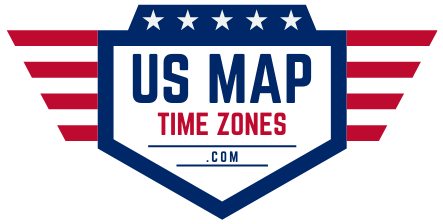Online Health Psychology Degree Programs
Discover the requirements for obtaining a degree in health psychology by looking into online associate, bachelor, master, and Ph.D. programs.
A health psychologist is what?
Health psychologists research the psychological problems brought on by physical illness or damage. By addressing the social, biological, psychological, and behavioral elements that have an impact on people who are dealing with or recovering from a medical illness, specialists in this field—also known as medical psychologists—promote general health and wellness.
Health psychologists strive to assist patients develop and keep a positive outlook despite their physical ailments by focusing less on the illness or disease itself and more on the person’s total mental health.
Clinical psychology’s subspecialty in health psychology offers additional specialization in several fields, including community health, occupational health, and public health. Health psychologists frequently concentrate their research on lobbying, community health education, or healthcare reform. Many of these experts investigate techniques for pain management, intervention, illness prevention, and behavioral evaluation in clinical practice, commercial businesses, or governmental organizations. Others might be professors of health psychology.
Even while certain positions in health psychology just need only a master’s degree, a Ph.D. is the norm in the field. The American Board of Professional Psychology (ABPP) mandates that health psychologists get clinical psychologist licenses in their respective states, and may also obtain board certification in health psychology. A doctoral degree, a certain number of postdoctoral experience hours, and a passing grade on a licensing exam are all requirements for licensure, according to ABPP.
Find out on this page if an online health psychology program is the right choice for you.
Common Questions Regarding Health Psychology
What is the role of a health psychologist?
The field of health psychology investigates the links between behavior and health. Interviews, examinations, and treatments are used by clinical health psychologists to assist clients with concerns such as coping with illness or injury and enhancing healthy lifestyles. Researchers investigate the reasons why people disregard or disregard medical advice.
With a degree in health psychology, what can I do?
Many occupations are open to those with degrees in health psychology. They might act as public health and community advocates, collaborating with groups to plan and carry out interventions at the population and community levels. Others may work in teaching, and instructing other medical professionals and health psychologists. Others may work as wellness specialists, assisting patients in adopting healthy behavioral changes, while some may pursue careers as health researchers studying the relationship between physical and mental health.
What are the social benefits of health psychology?
Hospitals and other healthcare facilities might get help from health psychologists with treatment and prevention plans. In addition, they provide information on issues like cost management and communicable disease prevention for healthcare policy. These psychologists assist people who are coping with the psychological consequences of illnesses, injuries, chronic conditions, and obesity.
What education and training are required to become a health psychologist?
People should have a master’s degree in health psychology at the very least. With this degree, they can work as research assistants or behavioral specialists under the supervision of a certified psychologist. A health psychology doctoral degree, an internship, and a licensure test are required for those who want to work independently and operate as clinical psychologists.
What is the typical training period for health psychologists?
A bachelor’s degree in clinical or health psychology is the prerequisite for becoming a health psychologist, and it normally takes four years to complete. Programs for a master’s degree in health psychology often last two more years. Doctoral programs in health psychology require an additional 2-4 years. In total, pupils attend school for about eight years.
Can You Earn a Health Psychology Degree Online?
More students can enroll in health psychology programs online. Students should have an unshakeable drive and commitment to years of academic study if they want to succeed in obtaining a master’s or Ph.D. in health psychology. Graduate programs in health psychology are offered online to cover the same material as those earned on-campus, but with more flexibility to suit parents with young children and people who work full-time. Numerous colleges offer specialized programs in clinical health psychology or mental health, and health psychology degrees are commonly available online.
Graduate programs in health psychology are offered online to cover the same material as those earned on-campus, but with more flexibility to suit parents with young children and people who work full-time.
For health psychology degrees, foundation and focus courses are typically offered to both on-campus and online students. However, completing a practicum is essential to earning a health psychology degree in any format; therefore, online students are required to arrange a program-required practicum close to their place of residence. All other homework is completed online by learners.
A few online schools in clinical and health psychology provide expedited forms. Some institutions offer both full-time and part-time alternatives for students to select from. Online courses in health psychology also benefit students who live in remote places and cannot use campus resources.
Getting into the Health Psychology Field
To practice in their state, clinical psychologists in any specialization are required to obtain licensing from the Association of State and Provincial Psychology Boards (ASPPB). Budgeting for a bachelor’s, master’s, and health psychology Ph.D. is advised for aspiring clinical health psychologists. There is also a $600 charge to take the ASPPB’s Examination for Professional Practice in Psychology. Students must complete 1,500–6,000 practicum hours in addition to the academic requirements to obtain a state license.
Additionally, clinical health psychology board certification is an option available to students. Board-certified licensed health psychology Ph.D. holders may have an advantage over rivals who lack this qualification. Students must earn a Ph.D. in professional psychology and complete a postdoctoral internship that lasts between one and two years in the field of health psychology to be eligible.
Online studies in health psychology are frequently less expensive than traditional degrees. By opting to study online, aspiring health psychologists can increase their return on investment by paying less in tuition, minimizing housing and travel expenses, and possibly finishing their degrees sooner.
Bachelor’s in Health Psychology online
Online undergraduate programs in health psychology educate students on the broad subject of psychology while briefly touching on the foundational ideas in the field. Clinical health psychology programs or programs that are part of a general psychology curriculum may also be used to refer to bachelor’s degree programs in health psychology.
A bachelor’s degree is frequently seen as the prerequisite for a master’s program in health psychology. Bachelor’s degree holders could be qualified for entry-level positions in research-based professions. Through an online program, graduate students can frequently save time and money.
Master’s in Health Psychology online
The master’s degree in health psychology delves more deeply into fundamental ideas. At this level, practicum requirements usually rise and make up a sizeable amount of the credits needed to earn the degree.
Graduate degrees in health psychology give students more specific knowledge than a bachelor’s degree. While a master’s degree is required to enroll in a Ph.D. program, students who pursue the health psychology master’s degree as a terminal degree may still be eligible for a range of advanced positions in the industry, including supervised practice in some hospitals, clinics, and government organizations. Students can take advantage of a special combination of convenient practical placements and adaptable distance learning through online programs.
Ph.D. in Health Psychology online
To be qualified to apply for licensing in their state, future clinical practitioners in this field must get a Ph.D. in health psychology. If they choose not to pursue licensure, health psychology Ph.D. graduates can pursue a high-level, non-clinical job like a college lecturer.
Psychology of health Depending on whether a student chooses to pursue a Ph.D. or Psy.D. program, Ph.D. programs frequently stress intense study and specialized field experience, with the thesis or dissertation as the final product. To meet the minimum requirement of clinical practicum hours, doctoral candidates may also undertake an independent study project or modify their curriculum (with advisor consent).
Online health psychology Ph.D. programs are offered by several universities to give part-time and full-time students additional flexibility.
Internships and Licenses Needed to Become a Health Psychologist
According to the American Psychological Association, aspiring health psychologists must adhere to the requirements for clinical psychology licensure (APA). As evidence that the program prepares graduates for the licensure procedure, health psychology online programs may also hold accreditation from bodies like the APA or ASPPB in addition to institutional accreditation. A doctoral degree is required to be licensed as a clinical psychologist with a focus on health psychology. Additionally, they must pass a jurisprudence exam, perform 1,500–6,000 hours of supervised practice, and pass the EPPP (if required in that state).
To be qualified for a license to practice clinical psychology, students must fulfill the necessary fieldwork hours. State standards vary, but according to the APA, 4,000 supervised clinical hours—roughly 2,000 internship hours and 2,000 postdoctoral hours—are needed in most jurisdictions to obtain a license. To continue completing credentialing requirements while pursuing a doctorate, learners often complete a demanding field-hour rotation schedule while getting a master’s degree. Students may opt to obtain independent certification in the field of clinical health psychology, however, it is not necessary.
Jobs for Health Psychology Graduates
Graduates with degrees in health psychology are qualified for a wide range of interesting jobs outside of clinical practice. Aspiring professionals in this field can work as health psychology college instructors, community health activists, and experts in fields like occupational health that mix psychology and science. Health psychologists are especially well-suited for jobs requiring comprehensive knowledge of the relationship between physical and mental health, even though psychologists in any discipline must exhibit outstanding communication, listening, and critical thinking abilities. Clinical health psychologists can typically pursue the widest range of opportunities in the industry if they possess both current licensure and an optional certification in the specialization.
Earnings for Health Psychology graduates
Salary ranges for mental health psychologists depend on their amount of education, experience, area of specialization, and region. Earning potential can be increased with additional credentials, such as the clinical health psychology certification, and specialized expertise above and above the basic criteria. Depending on the position, salaries differ.
The highest median yearly wage is earned by clinical health psychologists, who need a terminal degree and a state license for entry-level positions. The second-highest paying position is for public health analysts, who need at least a master’s degree and specialized training.
Position – average yearly income
- Technician in Occupational Health $57,584
- $44,527 for a mental health therapist
- Specialist in Community Health $47,183
- $61,771 Public Health Analyst
- $79,117 Clinical Psychologist
Thanks for visiting US Map Time Zones

